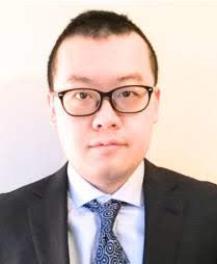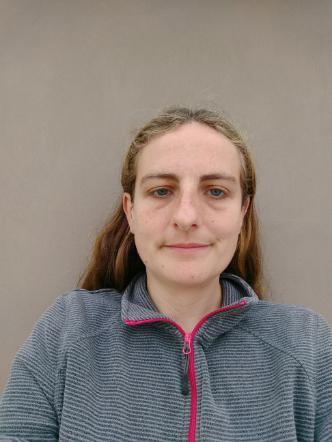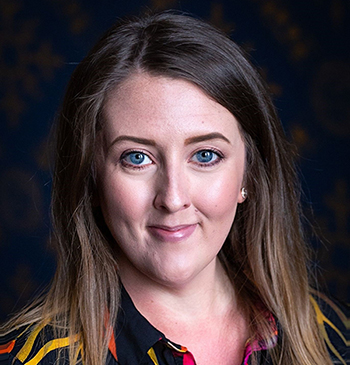Teacher Training and Education Case Studies
The Transitions Survey was originally conducted in Autumn 2019 in order to gather data about the post-graduation jobs of recent PhD graduates. Participants were asked about their roles, the transition into their roles, and their advice for current PhDs to make the most of their PhD experience and prepare for post-PhD life and job searching. Those participating in the case studies included here also had the opportunity to update their responses in Summer 2020.
Leanne McIver, School of Interdisciplinary Studies

Employment
Research Associate with the Centre for Excellence for Children’s Care and Protection (CELCIS) at The University of Strathclyde.
Position secured before graduation.
What does your role entail?
My job involves undertaking research and evaluation and providing support to colleagues and external collaborators to incorporate research and evaluation into their programmes and services.
What do you like and dislike about your current role?
It's varied and interesting, and I get lots of learning opportunities. I work with an amazing and dedicated group of people, in what can be a sensitive and sometimes controversial area.
How did your doctorate lead to your current post?
I applied for the job before my PhD was complete because my funding was coming to an end. The topic of my PhD wasn't directly relevant, but my experience of working with children, families and schools was considered useful, I think. I had quite a lot of experience of research and evaluation before starting the PhD, in the NHS and in education, and I think that experience was an influential factor for my being offered the job.
What career progression tips would you offer to researchers if they want to follow a similar path to your own?
Work as a research assistant and/or do a research Masters before embarking on a PhD.
Transitioning to Employment
What was most helpful to you in managing your transition on from your PhD?
I was working full-time from when my PhD funding ran out and writing my thesis in the evenings and at weekends. I submitted my thesis about seven months later. I think the gradual rebalancing of my time and priorities probably helped make the transition easier, although it didn't feel that way at the time! I think the transition was also easier than it might have been because I’d more or less worked the same hours through the PhD as I did in my full time job before it, so getting into the routine was fairly straightforward. My employers were also very supportive and recognised the challenges I was facing in trying to complete my thesis while working full time.
What did you find most challenging in making the transition?
Fear of not completing at all, because of having to work full time after my funding ended.
Also, finding the balance of what was expected of me as a research associate, compared to when I was a research assistant, but having had three years of being completely in charge of my own work in the interim, was a bit challenging.
The PhD
What advice would you give in terms of making the most of the PhD experience?
As far as possible, treat it like a job and work set hours. Take weekends and holidays. Make sure you have a life separate from it - see your friends and family, allow yourself some fun. Protect your mental health. All of that will put you in the best position to do a good job of your PhD and take advantage of opportunities that arise. Use the Researcher Development Programme to identify areas where you might benefit from some additional input and pursue opportunities to get that input (whatever it might be) even if it takes you away from your main project work for a short while. In my experience the actual topic/research of my PhD has been the least relevant thing to employers, but my experience and knowing I can undertake projects at that level has been more important. Your project doesn't have to be perfect and there's more implied by having a PhD than just 'I did some research and wrote it up'.
What do you know now that you wish you had known then?
That not all PhD funding has scope for sick leave etc. (although some funders do). With hindsight I would have asked more questions about what might happen to me financially if I encountered 'unexpected life events' while being entirely dependent on my stipend as my only source of income.
Graduate of the School of Social & Political Sciences
Employment
Lecturer for the University of Glasgow, on a fixed-term contract.
6 months to secure the position after graduation.
What do you like and dislike about your current role?
I'm on a teaching-only contract, meaning I continue to develop my teaching skills and have gained access to the PGCAP. The main barrier to me fully loving my job(!) is the fact it's fixed term.
How did your doctorate lead to your current post?
I undertook an internship during my PhD (through the university's careers service) - this allowed me the chance to meet someone in the Senior Management Group. A job arose in a different college early this year, and that member of staff advised the team that I would be a good fit for the post. I applied, successfully interviewed, and started the post during the summer.
What career progression tips would you offer to researchers if they want to follow a similar path to your own?
To not be afraid of teaching only posts - the university is making an active effort to put these on a par with research active staff.
Transitioning to Employment
What was most helpful to you in managing your transition on from your PhD?
My supervisor was great at providing advice RE: job applications, reading CVs and cover letters.
What did you find most challenging in making the transition?
The job market - the precarity makes it a difficult place to be. Before securing my lecturing post, I was seriously considering leaving academia.
The PhD
What advice would you give in terms of making the most of the PhD experience?
Take advantage of the opportunities - even if you feel that they are somewhat forced, they lead you to great places. And enjoy having the freedom to fully engage in your work - it's not like that at the other end!!
What do you know now that you wish you had known then?
How difficult it can be to get through rejection after rejection after rejection...but that I'd survive it all relatively unscathed.
Honglan Yu, School of Social & Political Sciences

Employment
Lecturer in Strategy, University of Huddersfield Business School.
Position secured before graduation.
What do you like and dislike about your current role?
I like both teaching and research. As a trained researcher, I like doing research and sharing new ideas with students. Currently, I am energetic and have not found anything that I dislike.
How did your doctorate lead to your current post?
Firstly, my doctorate subject knowledge contributes as it perfectly matches with my current role. Secondly, network opportunities and publication skills developed from my doctorate training are helpful in my job interview. Finally, opportunities of graduate teaching provide good experiences of higher education.
What career progression tips would you offer to researchers if they want to follow a similar path to your own?
- Accumulate networks.
- More publications.
- More grants.
- Keep calm when applying for jobs.
- Apply for HEA Fellowship (for teaching).
- Never make any expectations on any job post.
- Try informal contacts.
Hannah Gilman, School of Psychology

Employment
University of Glasgow, Subject Coordinator (Short Courses) and The Open University, Associate Lecturer
Position secured before graduation.
What does your role entail?
Involved in managing courses for Short Courses.
What do you like and dislike about your current role?
My roles are both part time (dislike) but allow flexible working (like).
How did your doctorate lead to your current post?
Teaching during my PhD gave me the experience I needed and helped demonstrate I wanted to follow a teaching and not research pathway
What career progression tips would you offer to researchers if they want to follow a similar path to your own?
Get as much teaching experience as you can during your PhD.
Transitioning to Employment
What was most helpful to you in managing your transition on from your PhD?
My interest in teaching led to getting enough experience during my PhD to secure a teaching job through contacts I'd made.
What did you find most challenging in making the transition?
Finishing the PhD was most challenging. It is difficult to find the "write up year" and difficult to be trying to apply to jobs whilst finishing write up - most employers are not interested in employing you until after the thesis is submitted
The PhD
What advice would you give in terms of making the most of the PhD experience?
The opportunity to get involved with teaching as this gave me the skills to pursue a non-research career track.
What do you know now that you wish you had known then?
It's ok not to finish your PhD.
Kirsty Annand, School of Physics and Astronomy

Twitter: @AnnandKirsty
Employment
External Engagement Manager for the Photonic Integration and Advanced Data Storage Centre for Doctoral Training (CDT).
About 18 months since graduation.
What does your role entail?
This CDT will train over 100 engineers and scientists over the next 9 years to tackle the challenges created by the increasing quantities of data generated by today’s society. This is a joint initiative between the University of Glasgow, Queen’s University Belfast, and The Irish Photonic Integration Centre in Cork and Dublin, so whilst I am based at UofG, I get to spend time in all four locations!
What do you like and dislike about your current role?
Pros: My role is so varied, and each day is never the same! One day, I might be engaging with stakeholders in order to devise and develop partnerships which meet the demands of industry today, the next I might be getting stuck in with some science outreach for primary school children.
A large part of my job is networking and developing strong and trusting relationships, so a lot of the soft skills I honed during my time as a researcher have really stood me in good stead in my current role. I also love that I get to learn about the fascinating research being undertaken at all of our partner institutions, whilst developing close contacts with our industrial partners.
I’m passionate about enthusing and educating young people about photonics and championing young women and girls in this field, so coordinating delivery of our outreach activity also suits me perfectly. The direct impact I can have on developing and championing the future photonics workforce is really exciting.
Cons: I’m very lucky to have secured a long-term position in my current role, as this has never been the case in previous academic employment. As is the nature of Higher Education, it is not unusual to be employed on a fixed term basis. This uncertainty can be quite challenging to manage and is definitely an inherent ‘con’ when working in academia.
How did your doctorate lead to your current post?
Upon approaching the end of my PhD, I knew that although I still enjoyed learning about science, I was definitely ready to move out of my academic bubble. I’ve always been passionate about communicating research to broad audiences and was keen to build my network and gain some industry insights into business.
After some time as a Post-doctoral Researcher, I spent 12 months as a Knowledge Exchange Associate at the University of Glasgow. This was an excellent first step out of academia for me, which involved fostering knowledge exchange across research, industry, policy, practice and the public, in order to create impact. It gave me a great understanding of what industry were looking for in potential new talent and products, and when I came across the job listing for my current post, I knew it fitted my skillset perfectly.
What career progression tips would you offer to researchers if they want to follow a similar path to your own?
Network network network. Get business cards, a LinkedIn, a professional Twitter and use them.
Transitioning to Employment
What was most helpful to you in managing your transition on from your PhD?
You do not need to match all of the essential skills on a job description. I cannot stress that strongly enough! Know your strengths and apply to everything and anything that sounds interesting.
What did you find most challenging in making the transition?
I found it so challenging to find clear headspace to pull myself away from writing my thesis to complete job applications without getting distracted or disheartened. It is a precarious time, often fuelled with impending lack of funding, and an ebb in confidence.
I think it is so important to schedule real time away from your usual writing place, to focus and commit to the job search. Ask people who really know you to advise on where they think your strengths lie, and reach out to as many contacts, companies, and colleagues as you can. You’d be surprised how many people will happily meet for a coffee to give you some honest advice.
The PhD
What advice would you give in terms of making the most of the PhD experience?
The number one best piece of advice I can give to any PhD student is to say ‘YES’ to as many opportunities as you can, especially in your first year. It is so important to build your network outside of your research area, and getting stuck in to science communication, undertaking an internship, or writing about science for a general audience is so important to develop you as a person, and keep your research fresh.
What do you know now that you wish you had known then?
Don’t compare yourself with others. All PhD programmes and paths are different. You just need to do what works for you.

